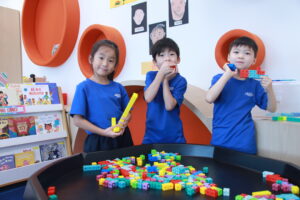Inquiry-based learning is a method that flips an important switch in your child’s mind. It can be tailored to make any topic, any subject, interesting to every child. Through inquiry-based learning, even the most reluctant learner becomes excited and eager to engage.
Have you ever tried to make it to the end of a book you found terribly dull? Did you make yourself plod onward, or did you simply set the book aside to gather dust? If it’s difficult for you, as an adult, to become engaged with topics you find mundane, imagine how your child must feel when confronted with their least favourite school subjects.
While there’s nothing a teacher would rather experience than a classroom filled with students who are engaged, curious and eager to interact, this rarely happens. In reality, students are engaged and curious about topics they find interesting. For most, this means music and social media take priority over maths and language arts. There is a solution to this quandary, however, and it’s called inquiry-based learning (IBL). Here’s how it works:
Inquiry-Based Learning Is Student-Led
Teachers act as facilitators in inquiry-led classrooms. This means they’re present to guide students and to help keep them on track. The learning experience, however, is driven by the students as they generate questions, which they then research, explore, examine and discuss to find answers. Learning is an open-ended process where there is room for children’s curiosity and more.
Let’s take an example of a subject theme, like classic poetry, for instance. In a traditional classroom setting, this might require students to read through a pre-determined collection of poems written by famous poets, while discussing such elements as rhyme, meter and meaning.
In the inquiry-based learning classroom, however, students decide how they wish to approach the topic. Instead of reading poems provided to them by a curriculum, they develop sets of questions to which they would like answers. Examples could include:
- What defines the term “classic”?
- Can contemporary poets write “classic” poetry?
- Do song lyrics count as poetry?
- What recurring themes are present in classic poetry?
- How difficult would it be to pen a classic poem?
- Is it possible for a person in the year 2020 to write a “classic poem”?
By exploring classic poetry in ways they find personally exciting and engaging, students still arrive at the desired goal: learning more about classic poems and the authors who wrote them. But by leading, instead of following, students play active roles in the learning process.
Inquiry-based learning not only puts students in the driver’s seat regarding what and how much they learn, it also teaches them how to research, how to pull answers from multiple resources, how to discuss information with fellow students and how to present the information they discovered.

Inquiry-Based Learning values Discovery over Knowledge acquisition and Memorisation
In the traditional classroom, knowledge acquisition and memorisation play a large role. Teachers present a lesson and children listen to the concepts and information presented. They are expected to remember the facts of the lesson and may have to memorise definitions, dates and names of events, people and places. They then demonstrate their memorisation and understanding of concepts during quizzes and tests. Learning is usually pre-determined with finite goals. Grades are assigned according to how well students are able to remember and reproduce the information taught.
In classrooms that use inquiry-based learning, however, none of the above happens. Instead, to study a topic such as environmental sustainability, students decide how to proceed. For instance, they may want to know:
- What will the planet look like in thirty years?
- How has the planet changed over the last decade?
- What can a student do to help keep Earth healthy?
- What are the current biggest threats to life on Earth?
- Which corporations promote sustainability?
- What should the consequences be for corporations that don’t promote sustainability?
With every student in the classroom looking at the topic from a different angle, and all students presenting their findings, learning expands far beyond the pages of a textbook, and environmental science comes alive inside the walls of the classroom.
Inquiry-Based Learning Teaches Additional Skills
Perhaps the most crucial role of inquiry-based learning in the classroom is the set of skills that children develop as a result. Students who are exposed to inquiry-based learning develop strong cognitive skills in questioning, reasoning and judgment. They polish their social skills through student and classroom collaboration and presentation. They practice reading, writing and researching. They learn to question and explore, rather than to memorise. Lastly, they develop a lifelong love of learning because the class is interesting and because they play an active role in where exploration leads.
At One World International School (OWIS), your child will learn to think beyond the confines of the classroom walls. With inquiry-based learning as a core part of our educational approach, students at OWIS develop solid cognitive skills that stay with them throughout life.
If you’re interested in the benefits of an OWIS education for your child, schedule a tour with us today. We offer primary years education at our Nanyang campus and our new campus at Suntec, which is right in the heart of Singapore.
(This blog was originally written in collaboration with Ms Deepali Dharia, former Primary School Teacher, OWIS Nanyang.)
















